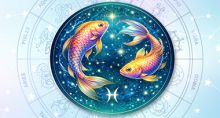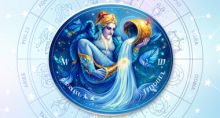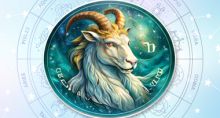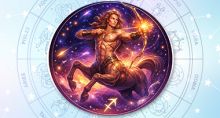Basic Components of Vedic Astrology
There is no better boat than a horoscope to help a man cross over the troubled sea of life.
What is Vedic Astrology all about?
Vedic astrology is a very helpful tool in the path of life. Vedic Astrology is the most ancient divinatory science in existence. Maharishi Parashara has outlined the principles of Vedic astrology in his treatise, “Brihat Parashara Hora”. He is the father of Vedic Astrology. It has been understood through this science, the interplay of karma, reincarnation and free will decides the destiny of man. It helps man in the alleviation of suffering caused due to his own action or karma. It is called Jyotish or science of light. Each being is influenced by the planets that exert powerful vibrations that control the destiny of man. Jyotisha is also referred to as, “samayavidya”, meaning science of right moments, as everything happens only at the destined hour. It is a combination of mysticism and mathematical knowledge which interprets the patterns of energy flowing from the heavens.
This Astrology consists of astrological and astronomical calculations, natal chart, horary astrology, muhurtha or auspicious time and nimita (interpretation of omens).
- One`s natal chart or horoscope is cast according to the planetary movements and their position at the time of birth. The natal chart reveals one`s fate and predicts the events that would unfold at the destined hour. Hence it is called predictive astrology. As one reflects deeper into the chart, insights into the sub conscious realm of the native, is known. It is an inventory of one`s desires hopes, weaknesses, strengths, emotions, attachments, longings, cravings, bondages, talents, abilities, fears, regrets, and many more aspects.
- The time of life events during which the planet`s influence becomes fully operative are called dashas. Predictions can be made accurately regarding the changes and events that would occur in one`s life. Though there are various types of planetary periods. Only vimoshottari dasa is universally applicable for purposes of prediction.
- The basic constituents of Vedic astrology are: 9 planets or heavenly planets, 12 signs of the zodiac, 27 constellations.
- Planetary positions and afflictions should be studied to make predictions. Strong planets yield positive or favorable results. Weak planets during their sub-periods bring unfavorable results and damages to the native. For example, a strong moon confers upon the native formidable mental strength. A strong Mars makes the native strong, confident and adventurous. Based on their strengths and afflictions remedial measures are suggested to overcome fate and exercise freewill to create a destiny that one envisions.




















